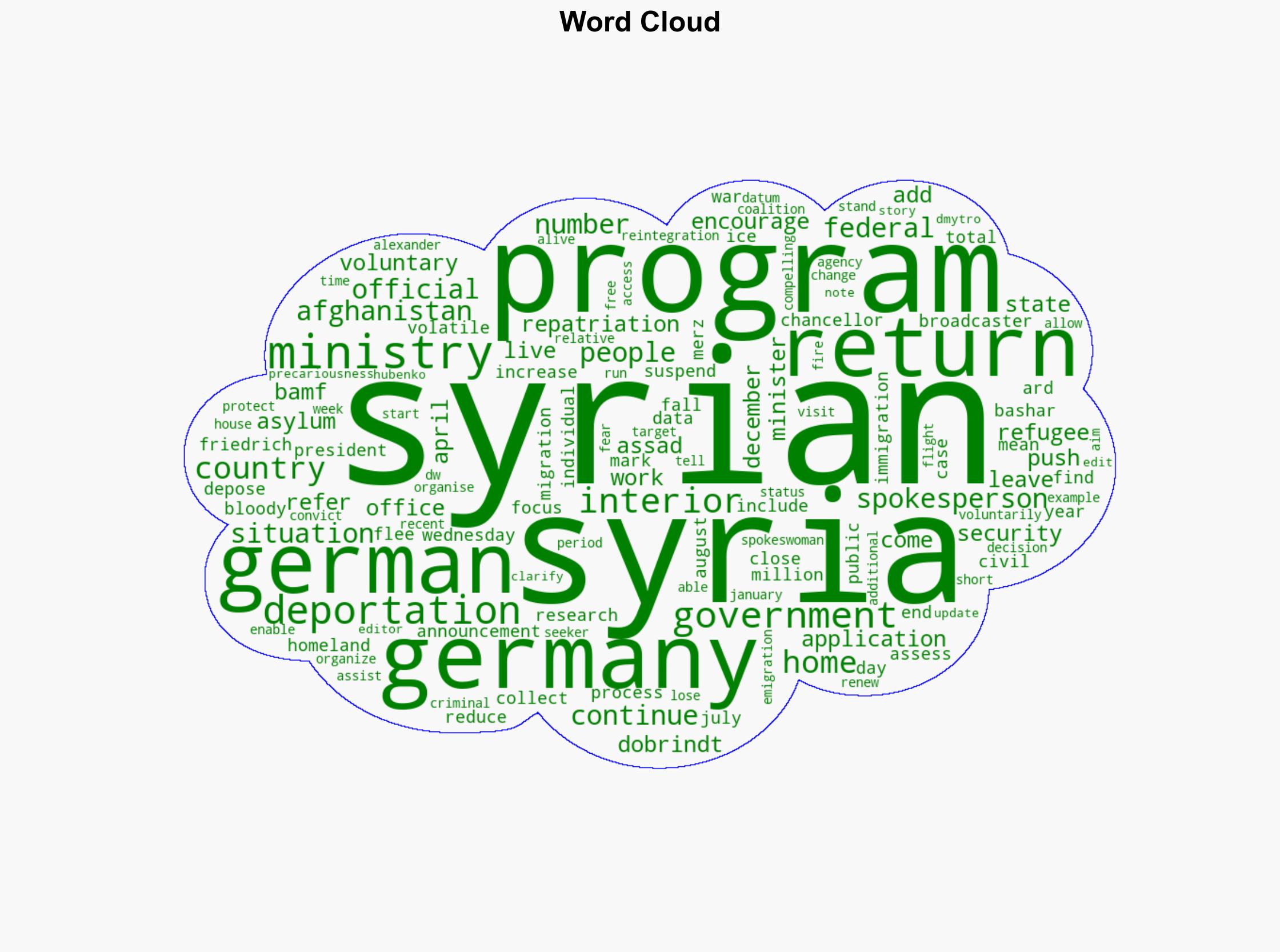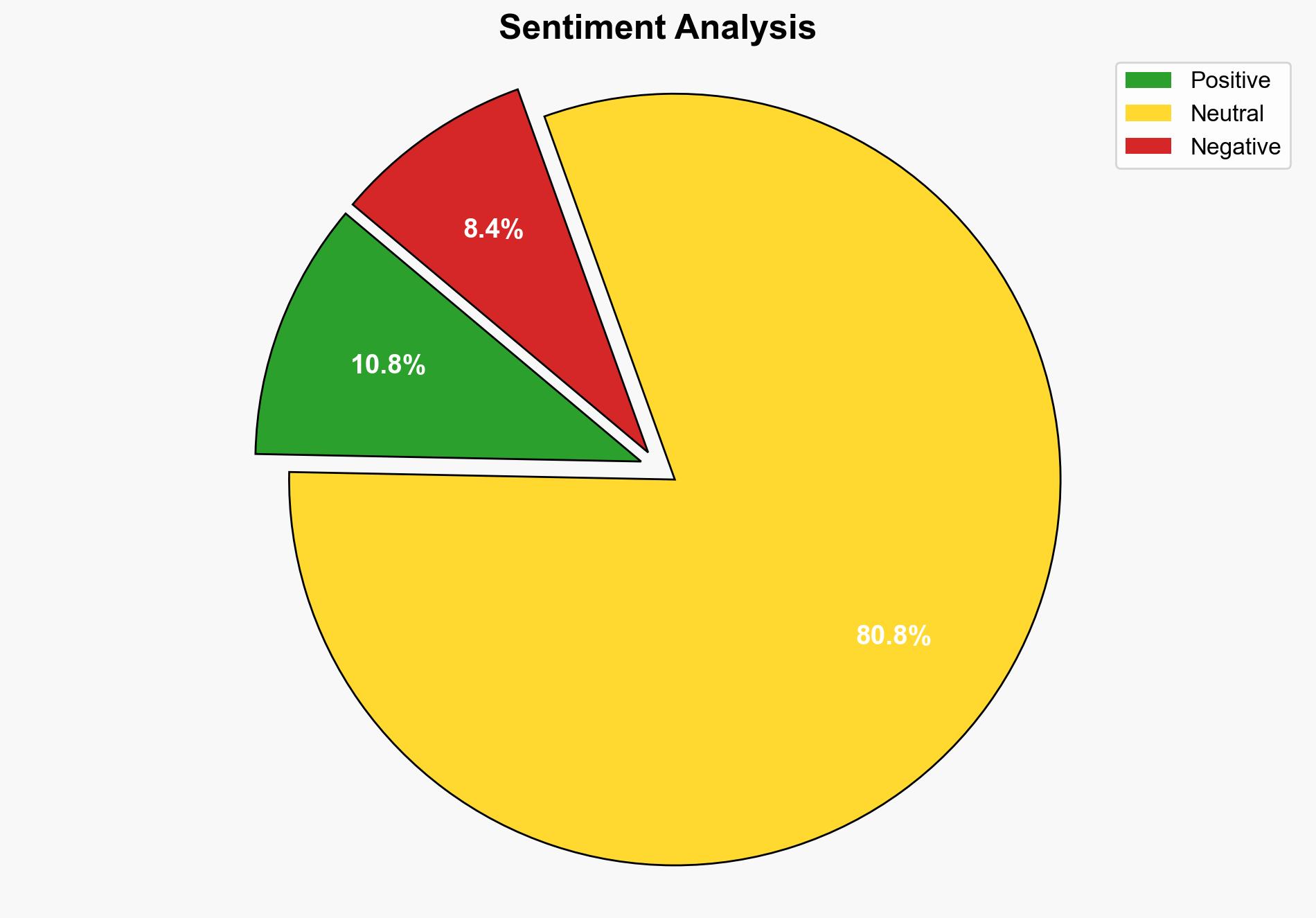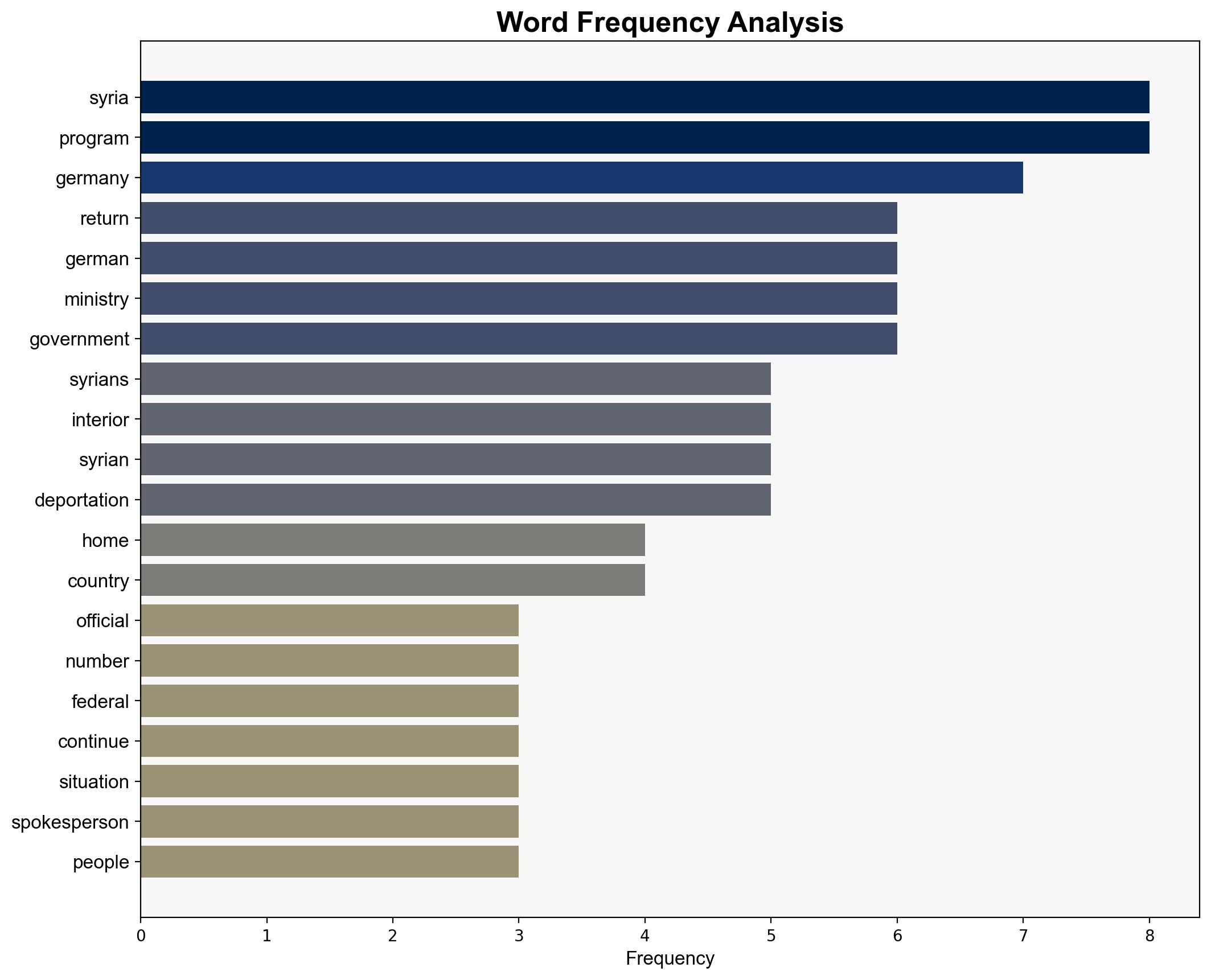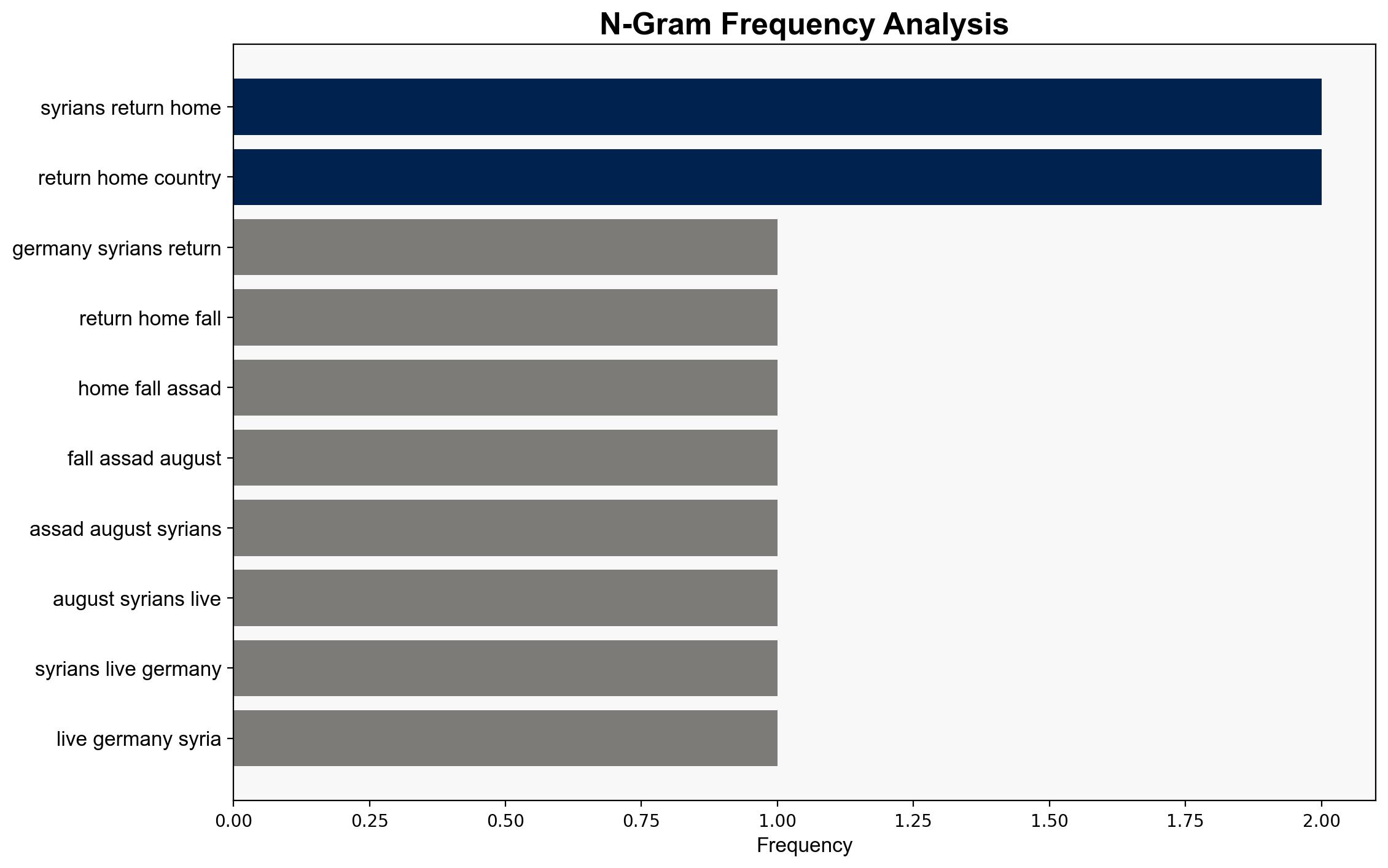Germany 1300 Syrians returned home since fall of Assad – DW (English)
Published on: 2025-08-13
Intelligence Report: Germany 1300 Syrians returned home since fall of Assad – DW (English)
1. BLUF (Bottom Line Up Front)
The most supported hypothesis is that the return of Syrians from Germany is primarily driven by voluntary repatriation programs and individual decisions rather than a significant improvement in Syria’s security situation. Confidence in this hypothesis is moderate due to limited data on the motivations of returnees. It is recommended that Germany continues to monitor the security situation in Syria closely and assess the impact of its repatriation policies on both domestic and international levels.
2. Competing Hypotheses
Hypothesis 1: The return of Syrians to Syria from Germany is largely due to voluntary repatriation programs and personal circumstances, such as family reunification or property management in Syria.
Hypothesis 2: The return of Syrians is motivated by a perceived improvement in the security situation in Syria, leading individuals to believe it is safe to return.
Using ACH 2.0, the evidence suggests that Hypothesis 1 is more likely. The structured repatriation programs and the German government’s encouragement of voluntary return support this hypothesis. There is insufficient evidence to support a significant improvement in Syria’s security situation as a primary motivator.
3. Key Assumptions and Red Flags
Assumptions include the belief that the German government’s repatriation programs are effective and that individuals are returning voluntarily. A red flag is the lack of detailed data on the security conditions in Syria and the specific reasons individuals choose to return. Potential cognitive bias includes confirmation bias in interpreting the effectiveness of repatriation programs.
4. Implications and Strategic Risks
The return of Syrians could impact Germany’s domestic policy on immigration and asylum, potentially influencing public opinion and political dynamics. Strategically, if the security situation in Syria deteriorates, there could be a renewed influx of asylum seekers. Additionally, the perception of Germany’s policies could affect its international relations, particularly with countries hosting large Syrian refugee populations.
5. Recommendations and Outlook
- Continue to assess the security situation in Syria to ensure informed decision-making regarding repatriation policies.
- Enhance data collection on the motivations and outcomes of returnees to refine repatriation strategies.
- Scenario Projections:
- Best Case: Stability in Syria improves, facilitating safe and voluntary returns.
- Worst Case: Security deteriorates, leading to increased asylum applications and political pressure in Germany.
- Most Likely: A mixed scenario with some voluntary returns and ongoing challenges in Syria.
6. Key Individuals and Entities
– Friedrich Merz
– Alexander Dobrindt
– German Interior Ministry
– Federal Office for Migration and Refugees (BAMF)
7. Thematic Tags
national security threats, immigration policy, regional stability, repatriation programs




